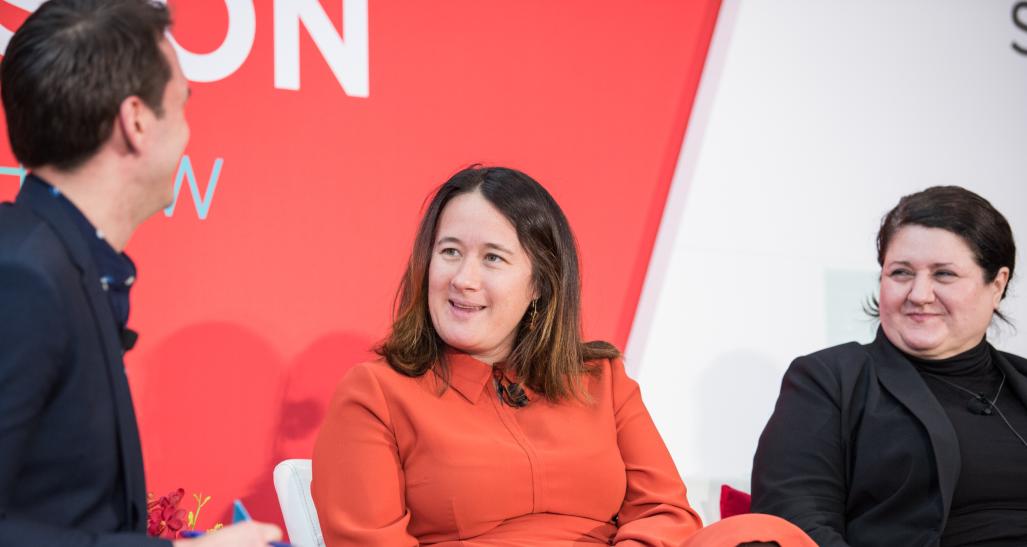
“Success will be when we don’t have to have this conversation anymore.” The line, from Bonobos CEO Micky Onvural, drew knowing laughter from the crowd assembled Monday at NRF 2020 Vision: Retail Big Show, uttered as it was in the midst of a conversation centering around the fact that we aren’t there yet.
Alexandra Waldman, co-founder and chief creative officer of Universal Standard, joined the conversation, moderated by Chip Cutter, a reporter for the Wall Street Journal.
We are at a tipping point. Everything is about to be different, and we want to be part of that change.
Alexandra Waldman, Universal Standard
Cutter began by asking Waldman, whose company provides its entire offering in sizes 00 through 40, to sum up the state of diversity as reflected by the fashion industry. “I think that we are at a tipping point,” she said. “Everything is about to be different, and we want to be part of that change. We want to spearhead the inclusion of everyone in the conversation, which has never been done before.”
Onvural suggested expanding the definition of inclusion to embrace not just what is seen — gender, ethnicity, body size, etc. — but what is unseen. “That to me is everything from gender identity, gender orientation, politics — and I think what’s interesting is how fashion can help express the entirety of who they are. We want to create a world where we all fit.”
It sounds great, said Cutter, but how do you actually do that, given the logistics involved?
“It’s definitely difficult,” Waldman said, “but it’s worth it. There are a lot of reasons for doing it, one of which is that you need to be on the right side of this. If you look at the standard of beauty promoted by the fashion industry, you see that the vast majority of people in the world are being told that they are not attractive. On a more practical level, it’s worth doing because the world is changing. If you get left behind, your business will suffer.”
“I completely agree,” Onvural said. “I believe that to change the industry, you really need to change the culture inside these companies. When I came into this job, I was shocked by how much homogeneity there was inside the industry. As an outsider, it was easier for me to see the things that needed to change for the brand to change, and in order for the business viewpoint to change.”
“A lot of people don’t realize how complex this entire space is. And if you go into a store, there’s nothing over a size 14, and that’s a hundred and fifty million women who are completely overlooked,” Waldman said. “And as much as I love my own brand, I want to be able to shop other brands, other labels. It tells you how calcified, how ingrained this prejudice is about body size. And billions of dollars are being left on the table.”
And what, Cutter asked, do you see coming in the year ahead? “I’d like to see a little less performative behavior in the fashion industry,” Waldman said. “I think we’ve now reached the point where people understand that there’s money in it. The North Star should be, the clothes you make for the smaller people, also make them for the bigger people. And they cost the same amount, everybody who worked on them got paid properly — it’s an ideal world, and it’s the world we want to live in.”